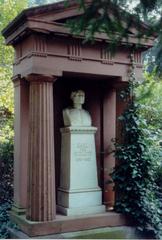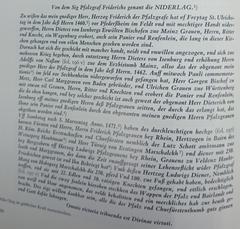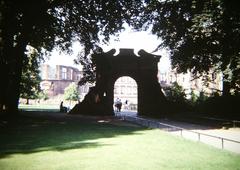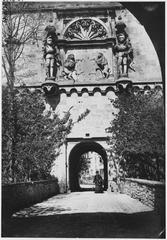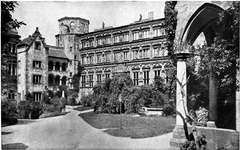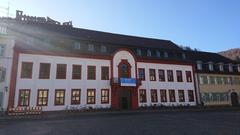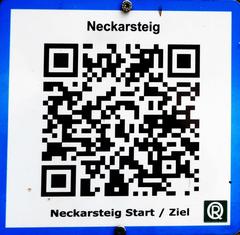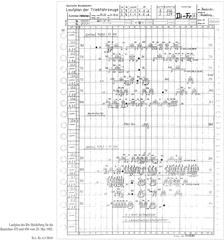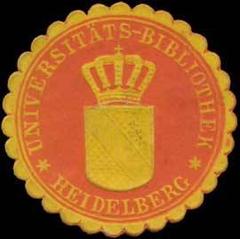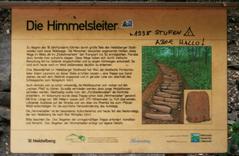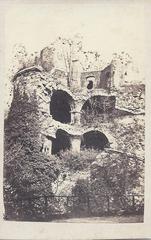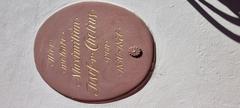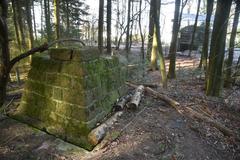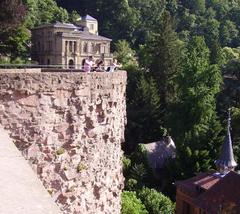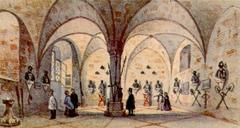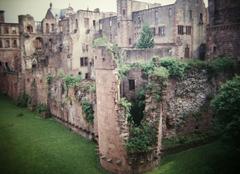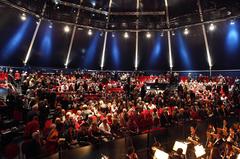
Philosophenweg Heidelberg – Visiting Hours, Tickets, and Travel Guide
Date: 04/07/2025
Introduction
Philosophenweg (Philosophers’ Walk) is one of Heidelberg’s most renowned attractions, offering visitors an immersive blend of natural beauty, historical depth, and academic heritage. Set on the lush northern hillside of the Neckar River, directly across from the city’s Old Town, the trail is celebrated for its panoramic vistas, Mediterranean flora, and the inspiration it has provided to generations of poets, philosophers, and scholars. This comprehensive guide delivers everything you need to plan your visit, from practical details on access and amenities to deeper insights into Philosophenweg’s cultural significance and nearby attractions.
For further information and up-to-date resources, consult Heidelberg Interaktiv, TravelSetu, and Culture Activities.
Table of Contents
- Introduction
- Origins and Historical Development
- Cultural Significance
- Visiting Hours and Tickets
- Accessibility
- Travel Tips and Recommended Visit Times
- Route Overview and Main Access Points
- Key Features and Points of Interest
- Activities and Experiences
- Practical Visitor Information
- Frequently Asked Questions (FAQ)
- Conclusion and Call to Action
- References and Useful Links
Origins and Historical Development
Initially a vineyard access road, Philosophenweg gradually became a favorite promenade for Heidelberg’s academic community during the 19th-century Romantic period. The path’s elevation and microclimate fostered lush Mediterranean vegetation, which, alongside sweeping views of the city and castle, attracted literary figures such as Joseph von Eichendorff and Friedrich Hölderlin. Over time, it evolved into a symbol of quiet intellectual reflection, further cemented by the university institutes located along its route.
Cultural Significance
Philosophenweg is deeply intertwined with the intellectual and artistic identity of Heidelberg. It served—and continues to serve—as a retreat for contemplation and dialogue among academics, poets, and thinkers. Memorials, plaques, and sculptures along the way commemorate the achievements of those who found inspiration on this hillside, reinforcing Heidelberg’s reputation as a hub of learning and culture.
Visiting Hours and Tickets
- Opening Hours: Philosophenweg is a public path, accessible year-round, 24 hours a day. Visiting during daylight hours (typically 8:00 AM to sunset) is recommended for both safety and the best views.
- Entry Fee: Access is free for all visitors; no tickets or permits are required.
- COVID-19 Guidelines: Check current local health regulations before your visit.
Accessibility
- Trail Conditions: The path varies from paved and gravel to cobblestone, with some steep sections—especially the Schlangenweg (Serpent Path) staircase from the Old Bridge.
- Wheelchair and Stroller Access: Due to the terrain, wheelchair and stroller access is limited. The ascent from Neuenheim offers gentler gradients, but most of the main path remains challenging for those with limited mobility.
- Rest Points: Benches and viewpoints are spaced along the route for breaks.
Travel Tips and Recommended Visit Times
- Best Seasons: Spring to early autumn (April–October) features pleasant weather and vibrant plant life.
- Best Times of Day: Early mornings and late afternoons offer softer lighting, fewer crowds, and spectacular photo opportunities—especially at sunset.
- What to Bring: Comfortable walking shoes, weather-appropriate clothing, water, sun protection, and a camera.
- Navigation: Use hiking apps or official maps for route planning.
Route Overview and Main Access Points
Length and Layout
Philosophenweg stretches approximately 1.5–2.2 kilometers along the northern bank of the Neckar River, ascending about 67–150 meters depending on the route. The walk typically takes between 30 minutes and 1.5 hours, allowing for stops at panoramic points and gardens.
Main Access Points
- Schlangenweg (Serpent Path): Steep, historic stairs beginning near the Alte Brücke (Old Bridge).
- Neuenheim District: A gentler ascent with proximity to parking and cafes.
- Theodor-Heuss-Brücke: A less crowded and more gradual approach.
- Ziegelhausen: For longer hikes, start further east and join the Philosophenweg via forest trails.
Key Features and Points of Interest
- Philosophengärtchen (Philosopher’s Garden): A terraced Mediterranean garden with spectacular city views.
- Eichendorff-Anlage: Commemorates the Romantic poet Joseph von Eichendorff and offers memorable vistas.
- Bismarck Tower (Bismarcksäule): A monument with panoramic outlooks over the Neckar Valley.
- Dr. Arthur Tischer Memorial: Tribute to a notable local historian.
- Thingstätte Amphitheater: An open-air venue at the far end of the trail; a relic of the 1930s.
- Botanical Diversity: The unique microclimate supports cypresses, almond and fig trees, Japanese cherries, and more.
- Sculptures and Informational Plaques: Highlight the intellectual and literary history of Heidelberg.
Activities and Experiences
- Scenic Walking and Hiking: Enjoy the peaceful natural environment, well-maintained paths, and frequent rest stops.
- Guided Historical Tours: Learn about Heidelberg’s academic legacy and the intellectuals inspired by the trail.
- Photography: Capture iconic perspectives of the Old Town, castle, and river—especially during golden hour.
- Picnicking: Bring your own snacks or purchase from local vendors to enjoy a meal with a view at the Philosopher’s Garden.
- Meditation and Mindfulness: The tranquil setting is ideal for reflection or yoga.
- Botanical Exploration: Educational signs detail the Mediterranean and exotic flora found along the route.
Practical Visitor Information
- Restrooms: Not available on the path; use facilities in the Old Town or at parking garages.
- Cafés and Kiosks: Seasonal kiosks at main viewpoints; full dining options in Neuenheim and the Altstadt.
- Parking: Garages in the Altstadt (P12, P13), Parkhaus Nordbrückenkopf near Theodor-Heuss-Brücke, and limited options in Ziegelhausen.
- Public Transport: Tram and bus stops at “Alte Brücke” and “Bismarckplatz” provide easy access.
- Pets: Dogs are allowed but should be kept on a leash.
- Cycling: Not recommended due to narrow and steep sections.
Frequently Asked Questions (FAQ)
Q: Is there an entry fee for Philosophenweg?
A: No, the trail is free and open to the public year-round.
Q: What are the visiting hours?
A: Philosophenweg is accessible 24/7, though daylight visits are best for safety and scenery.
Q: Is Philosophenweg wheelchair accessible?
A: Most sections are not suitable for wheelchairs or strollers due to steep gradients and steps.
Q: Are guided tours available?
A: Yes, various local operators offer guided walking and Segway tours.
Q: Where can I park?
A: Parking garages are available in the Altstadt, near Theodor-Heuss-Brücke, and in Ziegelhausen.
Q: When is the best time to visit?
A: Early morning, late afternoon, and during spring or autumn provide the best experience.
Conclusion and Call to Action
Philosophenweg is an iconic walking path that captures Heidelberg’s harmony of natural splendor and intellectual tradition. Open and free to all, it offers a memorable experience—whether you come to reflect on its academic past, soak in panoramic views, or simply enjoy a peaceful stroll.
To enhance your visit, download the Audiala app for guided tours and maps, and explore our related articles on Heidelberg Castle and Old Town. Follow us on social media for the latest travel tips, event updates, and inspiration.
References and Useful Links
- Heidelberg Interaktiv
- WildTrips
- Neleworld
- Culture Activities
- TravelSetu
- Visit Deutschland
- ReliefMaps
- Chefintravels
- GPSmyCity



